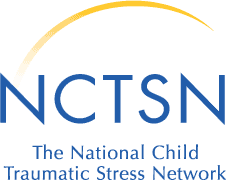If you are considering hiring an aide, you or a loved one has likely had a recent injury, surgery or illness. You may require assistance with personal care, ambulating or being transported safely in addition to needing help with meals.
Think about the kinds of things you expect from the caregiver:
- Do you want the person to take initiative in doing chores/tasks or should the caregiver only follow your instructions?
- Would you prefer someone who enjoys conversation or would you prefer to be left alone?
- Try to think outside the box with tasks that are not hands-on care (such as dressing, bathing and toileting}. The aide could straighten up the bathroom, change your bed linens and do laundry, help prep or actually prepare a meal for later, pick up groceries at the market, go to the pharmacy, etc.
- Try to be as specific as possible about the schedule that would work best for you- keep in mind the number of hours in the “block” of time and how many days/week and which days you prefer. Schedules are generally not set in stone. Health needs are ever-changing and schedules can change with the needs. Usually, agencies need 24-48 hours’ notice to implement any changes. Any changes in schedule must go through the office, not the caregiver. Call the home care agency to report any difficulties you experience in the adjustment to having a caregiver.
 When matching an aide to a client, it does help to know as much as possible. Understand that the caregiver and you may take several days to settle into a routine and that the first day may not be a good reflection on how good the match is. Agencies will do the best they can to match an aide based on skill set and caregiver availability to meet your needs. A creative solution, such as slightly different hours, may be offered by the agency if the caregiver they think would be best has availability that slightly differs from your initial request.
When matching an aide to a client, it does help to know as much as possible. Understand that the caregiver and you may take several days to settle into a routine and that the first day may not be a good reflection on how good the match is. Agencies will do the best they can to match an aide based on skill set and caregiver availability to meet your needs. A creative solution, such as slightly different hours, may be offered by the agency if the caregiver they think would be best has availability that slightly differs from your initial request.
Since the pandemic, many agencies now require a minimum of 16-20 hours per week of care due to the high demand for caregivers; many have had to increase their hourly rate from approximately $26 to $30, and many have increased the hourly block from 3 or 4 hours to 6-hour shifts. The minimum number of days care is given may have also been adjusted due to availability of staff. If you have a request for a shorter block of time or less frequency, you may have a greater turnover in aides being assigned to your care. In general, the more hours and days per week, the more consistent the caregiver. Each agency sets its own policy regarding rates and minimum care.
Not all agencies require their caregivers/staff to be vaccinated. We advise you to inquire about the status of your caregiver. Please know that the agencies do provide masks, gloves and sanitizers for their aides to use.
Generally, most agencies do not bring caregivers to your home to be “interviewed” prior to the assignment. The agency will match the best caregiver to your needs and if the match does not meet your expectations after several days, the agency will do its best to make any necessary changes. Most aides do not have interviewing experience and may not present his or her best version of oneself in that type of setting. If you are being discharged from a rehab setting, the agency can, in most cases, bring the aide to the facility for “training” by the PT department regarding any specific needs.
Following a hospitalization or rehabilitation stay, the agency may recommend having “round the clock” care for the first few days. This means you will be billed the hourly rate x 24, per day. The benefit of this is that your overnight needs can be evaluated so that you are safe, especially if there is concern about being a fall risk or having impaired sleep and needing care throughout the night. The agency will generally arrange for (2) 12-hour shifts, or (3) 8 hour shifts of aides. Once it is determined that you or your loved one is not at risk of falling at night, or is able to sleep through the night, the schedule can be adjusted to your needs.
If you require a caregiver who has his/her own car or has a driver’s license (and can drive your car) to do errands, take you to a doctor appointment, etc., please tell the agency. Not all aides have a car and/or a driver’s license.
If you need a live-in caregiver, keep in mind the caregiver needs to sleep and cannot work “round the clock”. Live-in aides are required to have 5 hours of consecutive hours of sleep, with 8 hours total per night, as mandated by labor laws. If the client needs brief help more than once or twice nightly, additional overnight support may be necessary; either a second aide can be added to remain awake overnight or two twelve hour shifts of care may need to be implemented in lieu of live-in care.
If you have a live-in caregiver, you will need to provide a separate room for him/her for sleeping in addition to providing food. Any unusual or special dietary requests by the caregiver are not your responsibility to provide.
Most agencies will charge time-and-a-half on holidays.
If you have a pet in the house, you need to inform the home care agency and do not assume that the caregiver will take care of your pet (walk, feed, clean litter box, etc.).
We hope you find this information useful. If you would like to speak to a geriatric care manager, please contact JFCS at 609-987-8100.
Beth Hammer, LCSW Geriatric Care Manager
Andrea Gaynor, LCSW Geriatric Care Manager
Beverly Mishkin, LCSW Director of Senior Services



 Resources in Response to the Robb Elementary School Shooting
Resources in Response to the Robb Elementary School Shooting









 A Festival of Freedom,
A Festival of Freedom, When matching an aide to a client, it does help to know as much as possible. Understand that the caregiver and you may take several days to settle into a routine and that the first day may not be a good reflection on how good the match is. Agencies will do the best they can to match an aide based on skill set and caregiver availability to meet your needs. A creative solution, such as slightly different hours, may be offered by the agency if the caregiver they think would be best has availability that slightly differs from your initial request.
When matching an aide to a client, it does help to know as much as possible. Understand that the caregiver and you may take several days to settle into a routine and that the first day may not be a good reflection on how good the match is. Agencies will do the best they can to match an aide based on skill set and caregiver availability to meet your needs. A creative solution, such as slightly different hours, may be offered by the agency if the caregiver they think would be best has availability that slightly differs from your initial request. Today’s threat on TikTok for potential school violence has spurred widespread concern and anxiety.
Today’s threat on TikTok for potential school violence has spurred widespread concern and anxiety. 



 At JFCS we are always available to provide care for the Caregivers:
At JFCS we are always available to provide care for the Caregivers:




